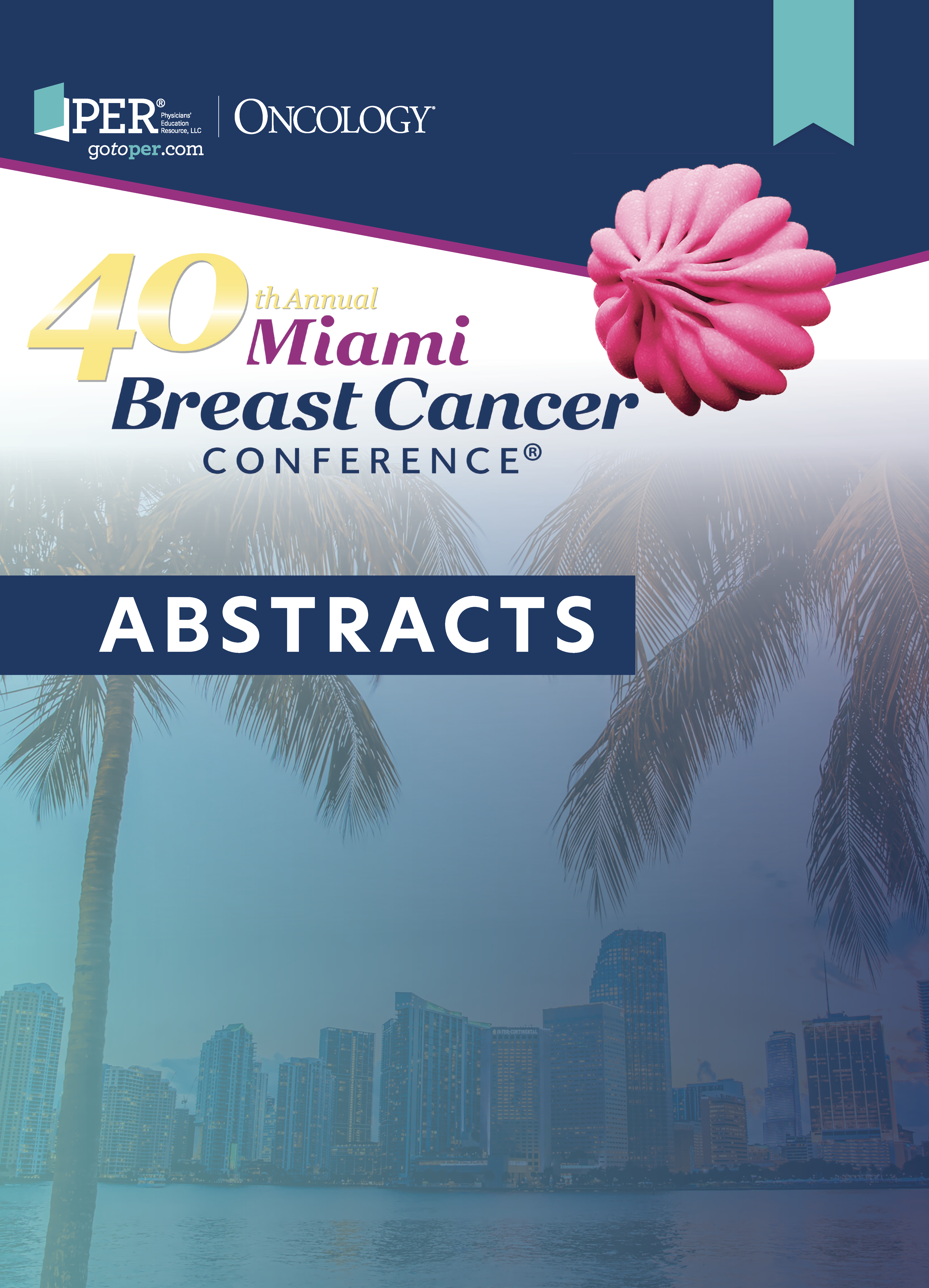20 TIP ELONA: An Open-Label, Phase 1b-2 Study of Elacestrant, in Combination With Onapristone in Patients With Estrogen Receptor– Positive, Progesterone Receptor– Positive, HER2-Negative Advanced or Metastatic Breast Cancer
Background
The addition of a CDK 4/6 inhibitor to hormonal therapy, as a first- or second-line therapy, provides a significant improvement in PFS, and in some cases in OS, with a tolerable toxicity profile. Regardless, most patients progress on these agents and ultimately develop endocrine resistance, thus, emphasizing the critical need for novel treatments. Elacestrant showed a statistically significant improvement in PFS when compared to standard-of-care endocrine therapy after progression on CDK4/6 inhibitors in combination with endocrine therapy, both in all patients and in patients with ESR1 mutations. Onapristone is a type I antiprogestin that prevents the progesterone receptor (PgR) from dimerizing and blocks ligand-induced protein kinase-mediated phosphorylation of the PgR. The clinical anticancer activity of onapristone, in an immediate-release formulation, has been previously documented in patients with hormone therapy-naive or tamoxifen-resistant breast cancer (BC). More recently, onapristone, in extended-release formulation, was evaluated in doses up to 50 mg BID in a phase 1 trial that enrolled 52 heavily pretreated patients with metastatic solid tumors, with no dose-limiting toxicity observed. Among the 20 patients enrolled, seven (35%) had stable disease.
Materials and Methods
ELONA is a phase 1b/2, open-label, multicenter study. The phase 1b portion of the study will assess the safety, PK, PD, and preliminary efficacy of elacestrant + onapristone to determine the RP2D of the combination. The primary end point of the phase 2 part of the trial is ORR and secondary end points will include DoR, CBR, PFS, and OS, in addition to PD markers using ctDNA and safety. Eligible patients are pre-, peri- and post-menopausal women and men aged ≥18 years with ER+/PgR+, HER2− tumors and an ECOG PS ≤2 with ≥1 measurable lesion at baseline, as per RECIST v1.1. Prior therapy in the metastatic setting includes at least one hormonal therapy in combination with a CDK4/6i. No prior chemotherapy regimen in the metastatic setting is allowed. The phase 1b dose-escalation portion of the study will evaluate dose-limiting toxicities (DLTs) of the combination in up to 4 cohorts of 6 patients each.
Status
Recruitment for ELONA began in 2022 with one active site: Sarah Cannon Research Institute.
AFFILIATIONS:
Erika Hamilton,1 Lajos Pusztai,2 Hatem Soliman,3 Sara Hurvitz,4 Krzysztof Grzegorzewski,5 Nassir Habboubi,5 Priya Marreddy,6 Tarek Sahmoud,6 Nuhad Ibrahim7
1Sarah Cannon Research Institute/Tennessee Oncology, Nashville, TN.
2Yale University, New Haven, New Haven, CT.
3Moffitt Cancer Center, Tampa, FL.
4University of California, Los Angeles, Los Angeles, CA.
5Stemline Therapeutics/Menarini Group, New York, NY.
6Context Therapeutics, Philadelphia, PA.
7MD Anderson Cancer Center, Houston, TX.
